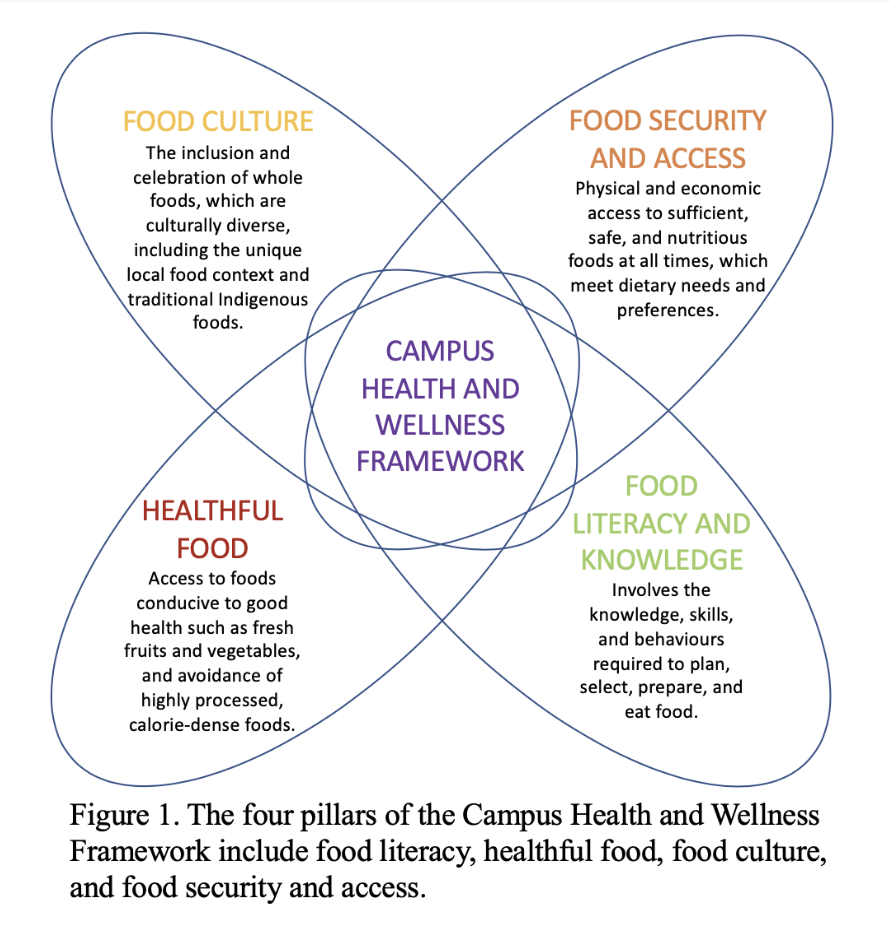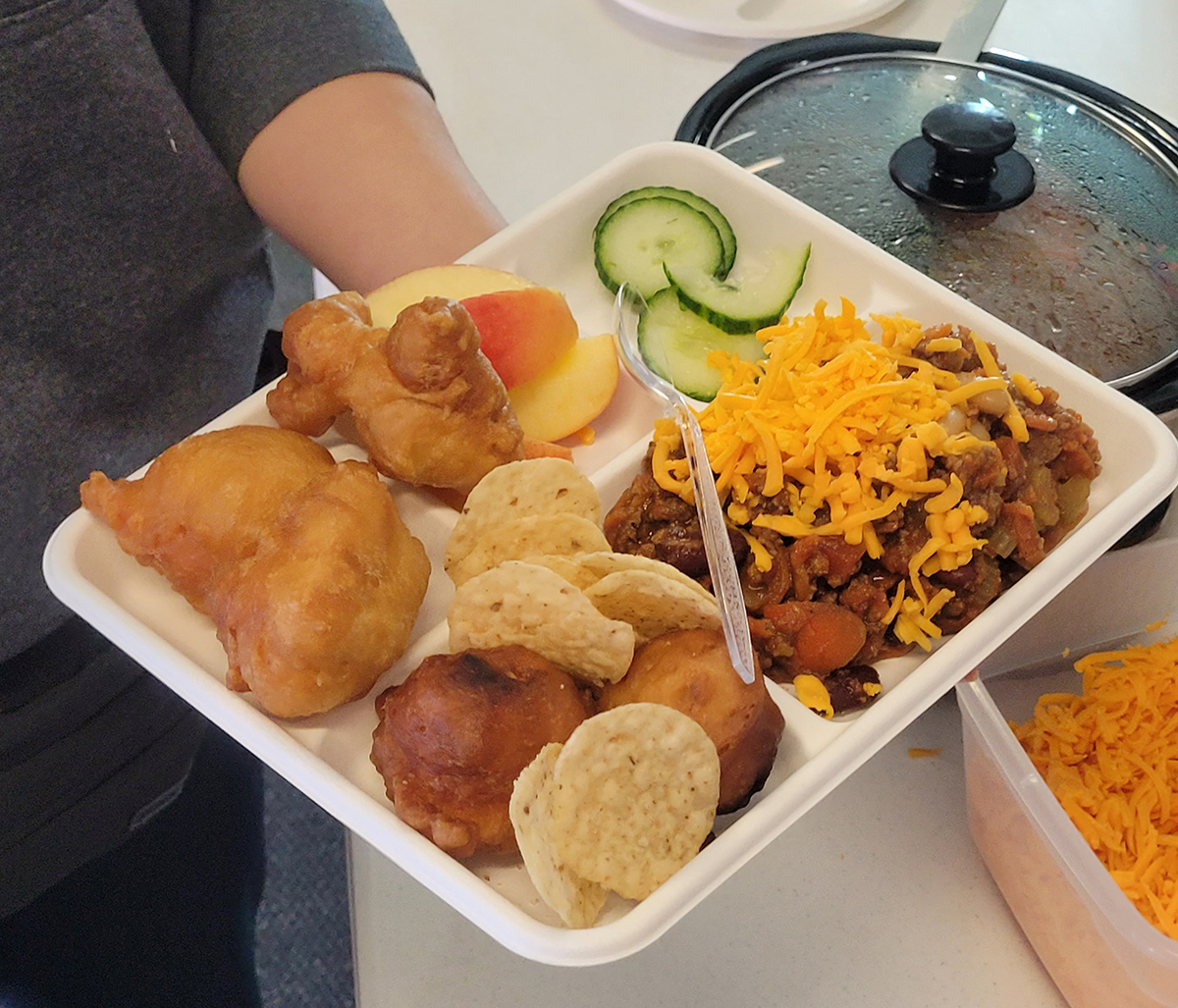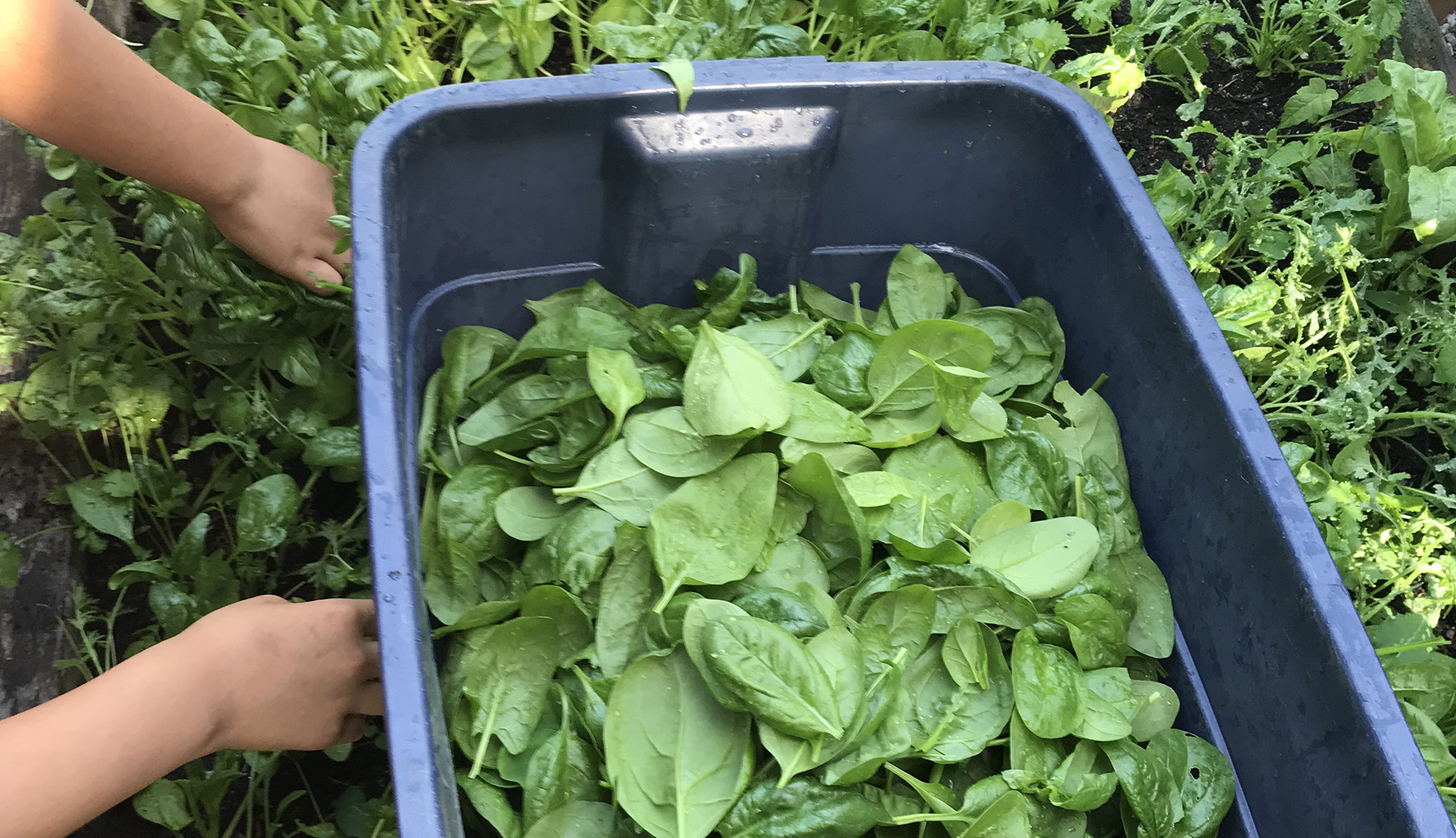By John Vu
Amongst the many different definitions and interpretations of sustainability, there is a need for a standardized metric that all post-secondary campuses can follow.
The Good Food Challenge (GFC) provides a rigorous national standard for Good Food (measured by the Good Food Calculator), captures best practices in campus food procurement, and establishes a national benchmark for campuses to uphold, with a goal of 20% campus Good Food procurement by 2025. This program by Meal Exchange was inspired and developed based on the Real Food Challenge in the United States, which has shifted procurement to be more sustainable and socially just at over 40 institutions.
McGill University is one of the campuses implementing the GFC on campus. Equipped with the Good Food Calculator, students at McGill University have reached out to the food service providers on campus and began collecting data on food services to evaluate their procurement of food that is sustainable and socially just. At this time, at least 50% of all food on campus is grown, raised, produced, or processed locally (within 500km from the campus). The students have been greeted with enthusiasm and a willingness to collaborate from campus hospitality and other food vendors. Although still in the preliminary stages, there are hopes of expansion and continuation of this program for the upcoming school year, allowing students to better evaluate how food on campus meets the Good Food criteria (community-based, socially just, ecologically sound, and humane) and verify that they are meeting their local and sustainable procurement goals.
Upon evaluation of the GFC, Meal Exchange has acknowledged that Health and Wellness were key components missing from the program; as a result, a position paper on Campus Health and Wellness and a Healthy Campus Survey were developed to address this gap. The aim of the Campus Health and Wellness position paper is to shift the perspective of campus wellness from one of meeting nutritional requirements to a holistic view on physical and mental well-being. This means including four core pillars into the definition of campus wellness. First, campuses need to have a strong food culture – a campus that reflects the cultural, religious, and ethnic diversity of students in their food services, and one that is accommodating of the dietary needs/preferences of students. The second pillar is that of food security/food access, which guarantees physical and economic access to sufficient, safe, and nutritious foods at all times for all students. Healthful food is the third pillar, which means providing students with access to nutritional foods that are conducive to the good health of students, such as fresh, local fruits and vegetables and other whole foods. The fourth and final pillar is food literacy and knowledge, which means equipping students with the knowledge, skills, and behaviours to plan, select, prepare and eat nutritious foods.
Building on the position paper, the Healthy Campus Survey is designed to evaluate how well campuses are doing at creating a food culture that is conducive to health and wellness. The survey scores can be used as guidelines for student experience coordinators and food service providers to understand areas that need improvement, and develop solutions accordingly.
Recognizing the need to encapsulate these four pillars into improving Campus Health and Wellness, McGill University developed the Midnight Kitchen.
The Midnight Kitchen is a non-profit, worker and volunteer-run collective currently operating at McGill. They improve food access and food security on campus by running a food bank and offering weekly meal pick-ups. This service includes a no-identification-no-questions-asked weekly event that allows individuals to bring their own tupperware and receive free food, often with access to a fresh salad. The Midnight Kitchen also offers various workshops throughout the year that are aimed at improving food literacy and knowledge, while fostering an inclusive food culture on the campus. During the months of May-October, they even have an on-campus garden. The 2019 garden is set to include many different fruits and vegetables that can provide a rich source of nutrition to students.
McGill University continues to build a food system that fosters an inclusive food culture, improves food security and access for students, supplies more healthful foods, and improves the knowledge and literacy of students. There is a movement of students across the country pushing for their campuses to build a better campus food system, thereby improving the educational experience for students.
John is a student at McMaster University, where he is completing a Masters of Science in Global Health. He is doing an internship with Meal Exchange to take what he has learned in the classroom and apply it to real-world problems. Currently, he is working on the Campus Health and Wellness position paper and the Healthy Campus Survey, as part of the Good Food Challenge. He is also a part of NoLunchMoney, an organization at McMaster that is also aimed at alleviating student insecurity and preventing food waste. John will be continuing his studies in medicine come the fall at the University of Toronto. His work through the Good Food Challenge has given him a holistic view on health that he will carry forward with him in his studies–one that integrates the prominent role of diet and nutrition in understanding physical and mental well-being.





